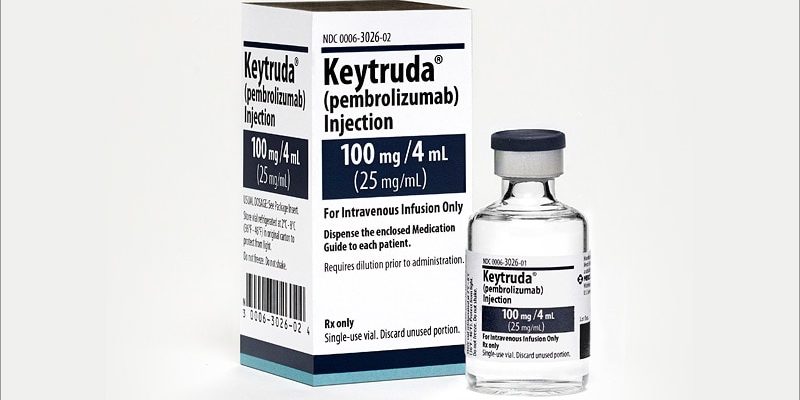The US Food and Drug Administration (FDA) has approved pembrolizumab (Keytruda) alongside platinum-containing chemotherapy as neoadjuvant treatment and continued as single-agent post-surgical adjuvant treatment for resectable non-small cell lung cancer (NSCLC).
The approval of Merck’s programmed death-1 (PD-1) inhibitor marks the first for continuous immunotherapy in the neoadjuvant and adjuvant NSCLC setting.
The approval is based on findings from the randomized, double-blind KEYNOTE-671 trial showing significantly improved overall survival and event-free survival (EFS) with pembrolizumab vs placebo.
The trial investigators randomized 797 patients with previously untreated and resectable stage II, IIIA, or IIIB (N2) NSCLC with tumors that are 4 cm or larger or node positive to either pembrolizumab or placebo with platinum-based chemotherapy every 3 weeks for 4 cycles. Treatment was followed by either continued single agent pembrolizumab or placebo every 3 weeks for up to 13 cycles.
Median overall survival and EFS among and patients in the pembrolizumab arm were not reached, whereas median overall survival was 52.4 months and EFS was 17 months in the placebo arm (hazard ratios, 0.72 and 0.58, respectively).
Adverse reactions occurring in at least 20% of patients included nausea, fatigue, neutropenia, anemia, constipation, decreased appetite, white blood cell count decreased, musculoskeletal pain, rash, cough, vomiting, diarrhea, and dyspnea. Overall, 6% of patients in the pembrolizumab arm and 4.3% of patients in the placebo arm had adverse reactions following neoadjuvant treatment that prevented them from having surgery while 3.1% and 2.5% of patients, respectively, had their surgery delayed.
The recommended dose of pembrolizumab, which is also approved for numerous other cancer types, is 200 mg every 3 weeks or 400 mg every 6 weeks.
Sharon Worcester, MA, is an award-winning medical journalist based in Birmingham, Alabama, writing for Medscape, MDedge and other affiliate sites. She currently covers oncology, but she has also written on a variety of other medical specialties and healthcare topics. She can be reached at [email protected] or on Twitter: @SW_MedReporter .
For more from Medscape Oncology, join us on X (formerly Twitter) and Facebook
Source: Read Full Article
